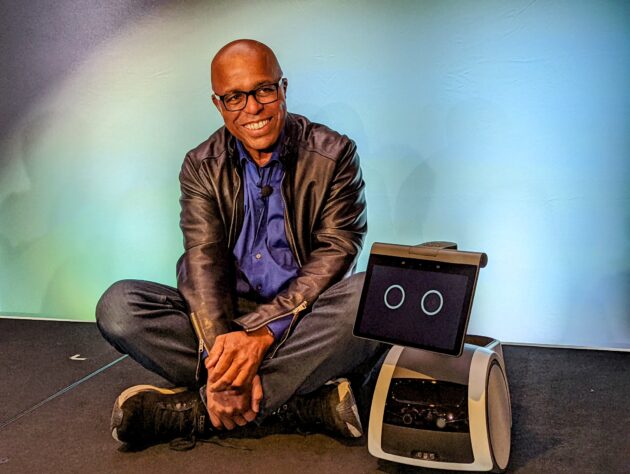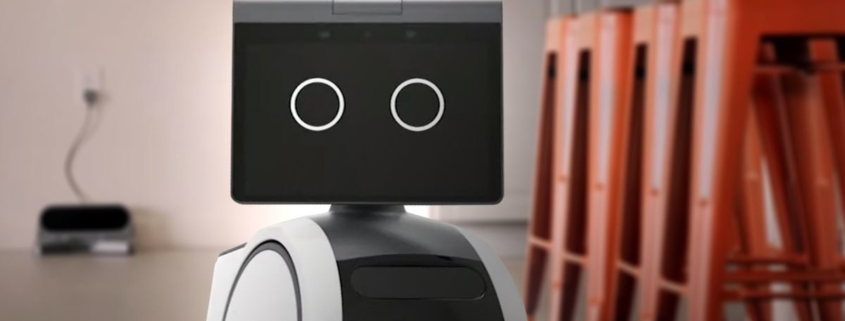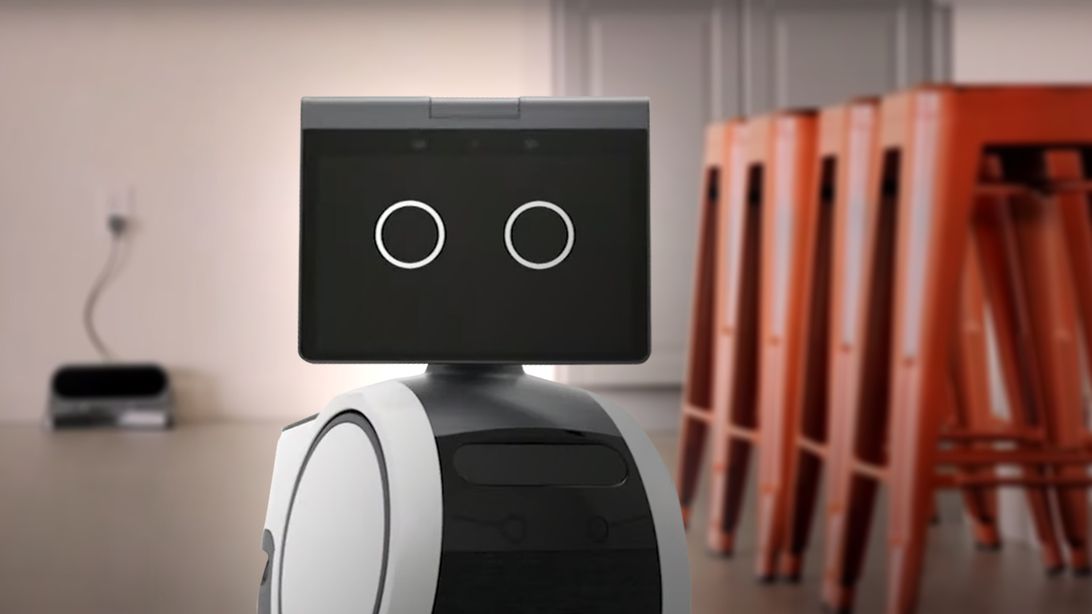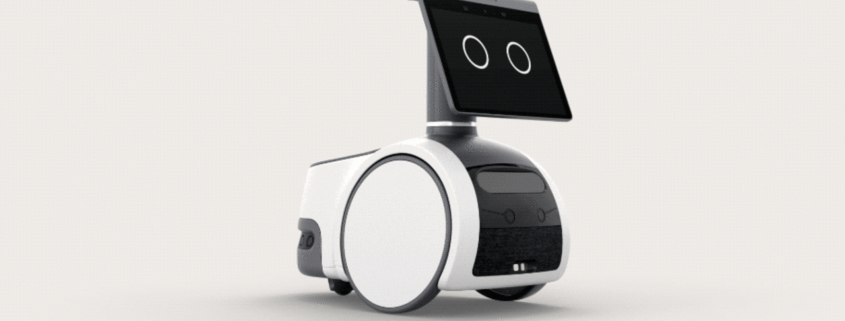Amazon plans more home robots despite early skepticism about Astro – GeekWire

Amazon unveiled Astro, its first home robot, in September, after developing the rolling Alexa device in secret for several years. In an introductory video, the company anticipated the skepticism Astro would face.
“A robot?” a mom in the video asks. “What are we going to do with a robot?”
In this fictional world, of course, Astro wins people over with its ability to navigate autonomously through a house, serve as a mobile security and video conferencing hub, check the stove with its periscoping camera, help family members check in on older relatives, start a dance party, and deliver a drink to someone on the couch.
In the real world, however, Astro still has some convincing to do.
Astro “is a solution in search of a problem,” concluded CNET’s David Priest in his review. “It’s cool, undeniably, and I’m excited to see what home robots look like in the near future … But for now, Astro remains an interesting device with a lot of potential, but too little utility to really be worth that price tag.”
That price tag, for now, is $1,000, if you’re one of the limited number of customers whose request to purchase Astro is approved through Amazon’s Day One Editions preview program. Eventually, when Astro is more widely released to the general public, the price is expected to go up to $1,500.
Astro is 17-inches tall with a 10-inch display, a rear cargo hold and a periscoping camera.
It rolls around autonomously on two wheels. In essence, it’s a mobile Echo device, responding to questions in the voice of Alexa. Astro otherwise communicates through beeps and blips and a pair of expressive digital “eyes” in the form of simple animated emoticons on its screen.
Amazon acknowledges the skepticism about Astro but makes it clear that it’s not giving up so easily. The company is working on improvements based on initial feedback, and it describes Astro as the first in a line of home robots.
“This is the beginning of the journey for us,” said Ken Washington, Amazon’s vice president of consumer…



